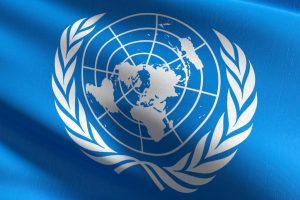Uzbekistan has made substantial investments in upgrading its water supply and sanitation (WSS) services over the past decade, amassing the largest public borrowing portfolio for WSS projects of any country in Central Asia. Despite such progress, the country’s citizens continue to face challenges in accessing clean and reliable water services that is explained by the poor state of water supply infrastructure in several regions. For instance, many households, particularly in the rural areas remain unconnected to a piped water system, and those who are connected typically have a range of service issues, including intermittent supplies and sub-standard water quality.
The World Bank is supporting the Government’s efforts to implement several large projects to improve situation with supply of clean drinking water and sanitation for thousands of citizens in different regions of Uzbekistan. Since 1996 this international financial institution has allocated around $450 million for modernizing water supply and sewerage systems in cities and rural areas of Karakalpakstan, the Khorezm, Bukhara, Samarkand and Syrdarya Regions.
A World Bank team recently visited the Syrdarya Region to monitor the progress of a project that will help supply 280,000 residents with clean and reliable drinking water. For the modernization and extension of water supply systems in Sardoba, Bayaut, Mirzaabad, Akaltyn and Khavast districts, the World Bank has provided a concessional loan of $88 million. The Government of Uzbekistan’s own contribution to the project is more than $12 million.
Towns and villages in the project area are currently supplied through old transmission schemes or from individual wells, which have reached a state of acute disrepair, resulting in a breakdown of water supply services in many communities. It is estimated that 25% of the towns and villages in the project area do not receive piped water and must rely monthly supplies from water tankers.
Out of those who have access to piped water, 55% receive less than 6 hours daily, 10% between 6 and 24 hours daily, only about 10% receive 24-hour service. For others the water sources can be unsafe, or costly – with consumers investing more time and money in alternative supplies and onsite storage and treatment (e.g boiling and filtration). During the two-day visit to the Syrdarya Region the World Bank representatives held a number of meetings with local partners involved in the project implementation, including officials of the Syrdarya State Utilities Enterprise “Suvokova” (Vodokanal) and the Ministry of Housing and Communal Services, as well as with consultants to discuss the project implementation issues related to finance, procurement, safeguards, construction works etc.
“Currently, thousands of local households are still experiencing severe challenges to access clean drinking water, especially through the harsh summer and deep winter periods. These households, which are typically of low income status, also bear additional costs in terms of money and time spent to collect water from various sources. In some rural areas, residents spend six hours per day, walking two kilometers to the public tap outlet, waiting in line, and then walking back with full containers. The situation in the region will significantly improve after completion of the water supply infrastructure expansion in 2019,” David Lord, the World Bank Team Leader says.
The Project envisages to develop new groundwater sources, with installation of 22 production wells, modular chlorination facilities, more than 1,500 km of transmission and distribution pipes, 40 water distribution centers, 32 water towers, and household connections across the Syrdarya region. The expanded water supply infrastructure will provide around 47,000 households in 93 settlements across the five districts with access to water directly through individual metered connections. Water loss during delivery to users will be reduced from more than 40% to less than 15%, while daily consumption will increase from around 15 liters to 95 liters per person in rural areas and to 125 liters per person in urban areas. In Uzbekistan, the World Bank currently supports implementation of 16 projects, which are worth of more than $2 billion. Those projects cover such priority areas as agriculture, energy, transport, healthcare, higher education, urban development, water supply and sanitation and water resources management.




